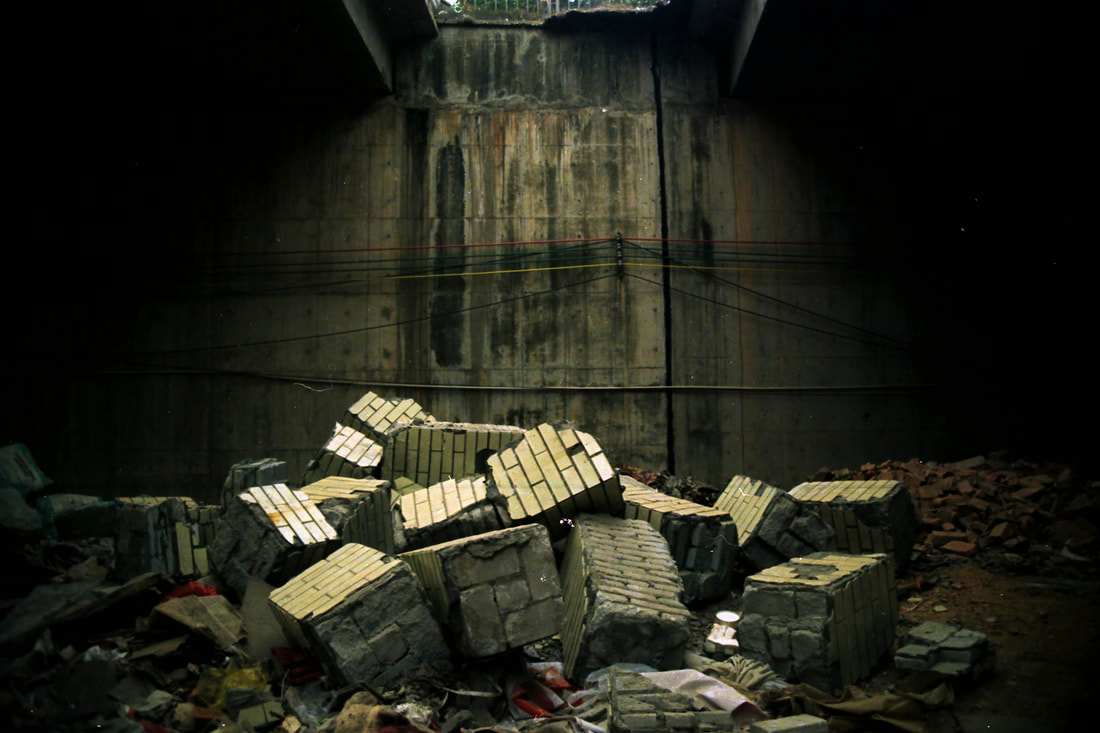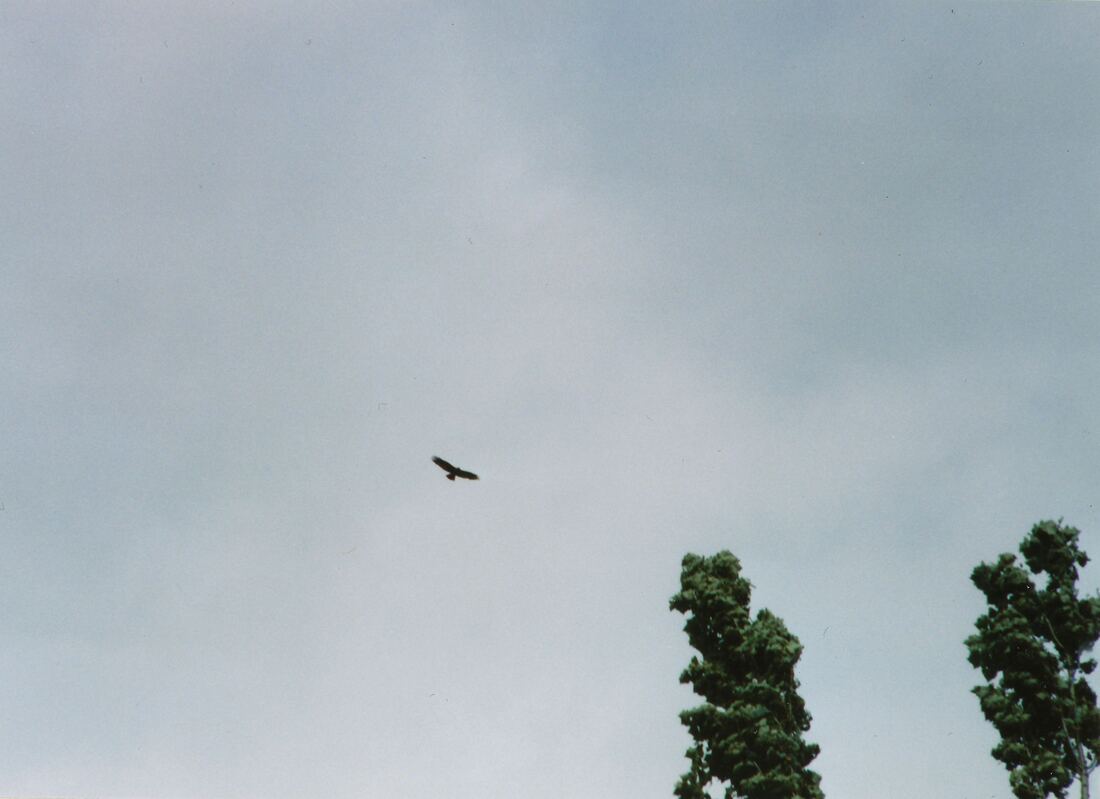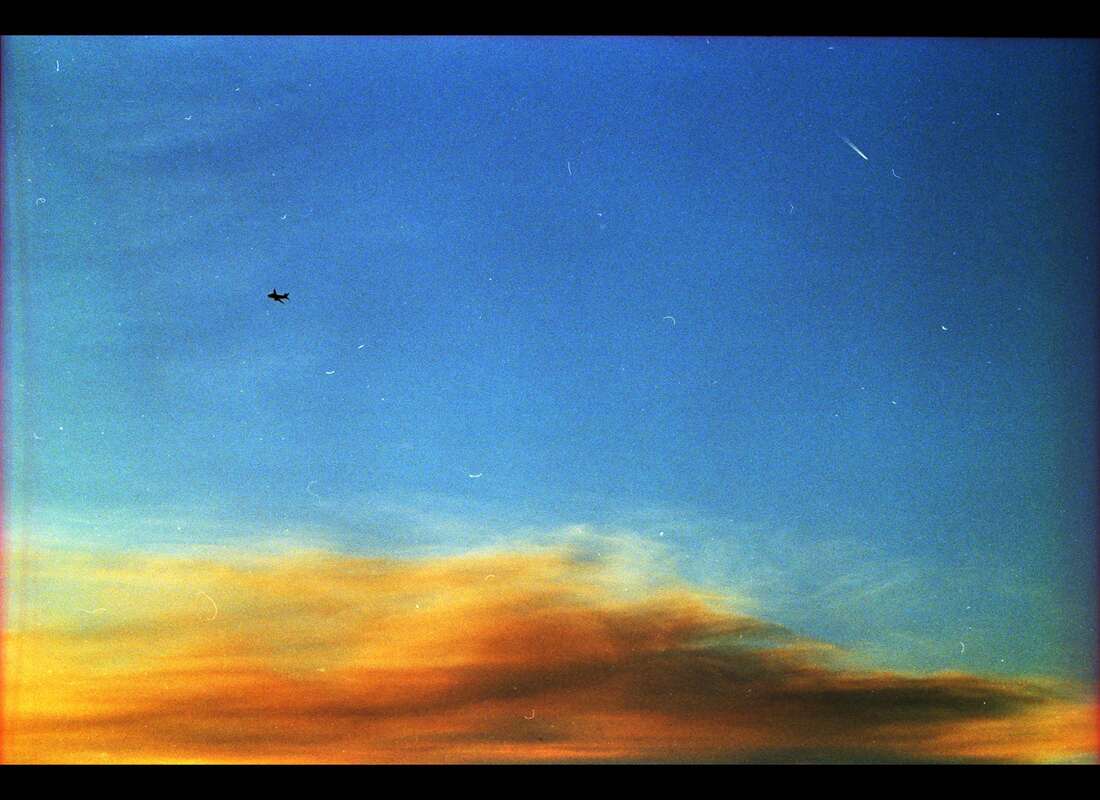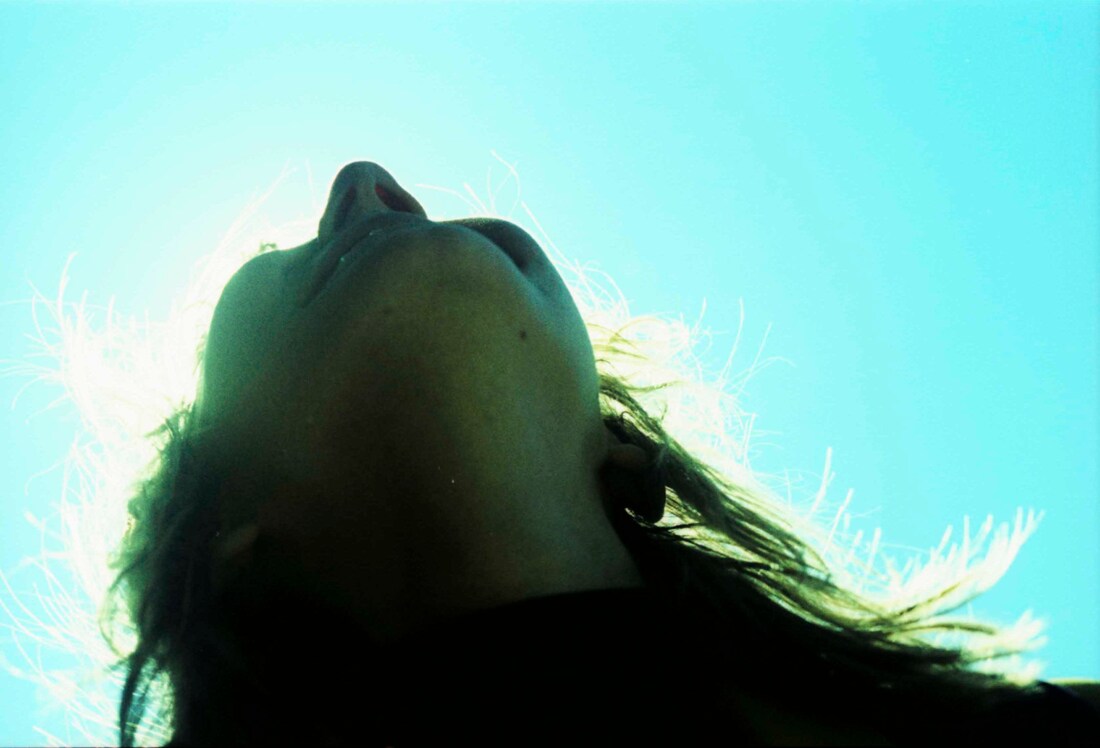|
There's something formidable about the place. It surpasses the American understandings of boundaries and size, sidesteps our notions of fealty and social constructs. Remember the childhood feeling, overwhelmed with the realization that the world is more than you know? Travel often does that for adults, and China does that for those who travel a lot.
Shenzhen, where these (film!) images were made, is a port city connecting the mainland to Hong Kong. In 2012, when I was there, it had the indefinable adventurous grit port cities have, the fractal conflations that slip and slide against each other in a concentrated space without borders. The city was burping upwards in fits and starts, a somber sort of puberty evinced by skyscrapers and levelled villages; no corner of communist China reeks more heavily of late-stage capitalist strife than Shenzhen. But that isn't what grabbed me. What grabbed me was the mystery of a stillness no amount of speed, sound and fury could overtake. Photos and more here.
2 Comments
So this piece first appeared on Seattle and LA shelves in Hart Boyd and Daphne Hsu's wonderful 2018 Zine, Workin' On It. As Boyd explains on his site and in this Medium.com interview, the zine "explores creative development through relationships between an individual’s childhood expressive efforts and their current practices/productions... through work samples from both past and present and a short piece of writing detailing their connections." My piece (with new thoughts) is below, and concerns these two photos I took: one as a preteen youngster, and the other deep into my art career. You can probably tell which is which: Here we have the text which accompanied these images:
At least twenty years separate the images, possibly more; but what of substance has truly changed? Yes, the first is a childhood snapshot, at first blush more a document than a creation. The second, still using the same 35mm format and still avoiding all digital manipulation, as is my wont, represents a progression of technique. The colors are richer because of the decision to process the now-extinct Kodak E100vs slide film in a chemical bath designed for negative film, thus deepening contrast and blowing out the color spectrum. There is an awareness of the rule of thirds, of the painting practice my photography is now rooted in, of a need to use photography not to record, but to create. But isn't all that just window dressing? We are left, finally, with two images of the same emotion: the plaintive and deep-seated wonder at the manyness of things, a mixture of confusion and admiration adding up to a quiet wonder. In all societies light has been a metaphor for truth, and we look upward when we want to know more. There was something about those floating trees, objects seen against the sky, and that silent swirling being overhead. I was feeling lonely in Redmond, Washington; two decades later I would call it pensive, alone overlooking San Fernando Valley. "Only the most naïve questions are truly serious," Milan Kundera wrote. "They are the questions with no answers." There is no difference between the questions I ask now from those I asked then; I know only that as a child, it was easier to be happy. --- As I post this today, I realize I would write the final sentence differently. What is happiness? Is it peace? Excitement? Or deeper down, is it synergy between expectations and outcome? You're thinking it has something to do with freedom, and satisfaction of needs. Makes sense. But Tolstoy writes in War and Peace that "a superfluity of the comforts of life destroys all joy in satisfying one's needs" (emphasis mine); that "all unhappiness arises not from privation but from superfluity." Basically, if you have everything, you fall into a stasis. I'm reminded of coming across the graphs of income versus happiness; people get happier the more money they make, until the two lines peak together somewhere between $60-75,000 a year– after which things level off, with happiness decreasing after $105,000. Mo' money, mo' problems, indeed. We humans are searchers. We need to be incomplete, on our way somewhere. Clawing our way up walls of challenge, as Tennessee Williams famously wrote in his 1947 essay The Catastrophe of Success (about how he found himself mysteriously miserable and uncreative after becoming rich). In her landmark 1971 essay "Why Have There Been No Great Women Artists," Nochlin notes that artists almost never come from aristocratic backgrounds. There's a clarity of sight that comes from a certain amount of struggle, alongside the loneliness we humans feel simply from existing as individuals. My own struggles as a working-class artist have been less financial than emotional, psychological, existential. Was I happier as a child? I'm actually not sure, on further reflection. People forget how frustrating growing up can be. What I do know is I've honed the muscle of choosing happiness, of deciding what to see, to a level I definitely never had as a youngster. No job is better suited for it than mine: a neutral deluge of the best and worst of humanity, dumped in your lap by the Universe, as if it's saying: "Here's a riddle for you." The trick is not trying to answer it. The trick is looking for the light. By looking for goodness, you manifest it in yourself and by extension in others. I wouldn't trade that skill for anything. Further reading: Linda Nochlin: a primer on her essay, and the essay itself. Nature: Human Behavior. "Happiness, income satiation and turning points around the world." Moneyish. "The dark reasons so many rich people are miserable human beings." CNBC. "From the ‘perfect’ salary to keeping up with the Joneses, here’s how money really affects your happiness." Christmas Eve.
I was parked at my layover, inside the bus. What was I reading? I don't remember. Probably Middlemarch. I turned the page and looked up, out at our neon-hued urban night, a rain-slicked reflective darkness scattered with the detritus of nature and decay. A movement caught my eye. Something irregular in the periphery. Yes, that was it: a man had ridden past on his bicycle, on the sidewalk to my right, before stopping suddenly. Interesting, but only so much. I returned to Ms. Eliot's prose. Books distract me from the loneliness of having to work a holiday, and deepen my appreciation of existence. I was straddling worlds, taking comfort in what only books can offer– no waiting for the screen to load or app to start up, no pause while you anticipate a text; just the gentle rhythms of imagination, and the turning of pages which will never freeze or go dark on you. That was when he knocked loudly on my driver's side window. I was standing by my driver's seat, using it as a table of sorts to lean on while reading; I never sit on my breaks. What bus driver would? I looked up. The guy on the bike had come over to my window, and was in the roadway trying to get my attention. "Hey," I said, by way of greeting and reply to his presence. He spoke loudly now, loudly enough to be heard through the glass: "Hey! Be sure to have a Merry Christmas!!" Wow, I thought. I had just barely enough time to respond with heartfelt surprise before he rode away. "You too!" I exclaimed with gratitude, my hands joined in a clasp of thanks. Would that we could decide which moments we'll hang onto. Which will linger as memories, representing all those in-between exchanges our lives are made of? Sure, you remember the epochal milestones, the documented highlights people will always bring up, but what about the daily substance of it all? Was this any less illuminating of how people can be? Let me store it away with words. Let me repeat the truth of it: a person out there in the world paused, turned back and came over to me. They thought about it. That bus driver's working on the holiday. I should say something. It was important to him, enough to alter the rhythm of his day and direction. I'll never see him again, and he got nothing out of it. But: the gesture. The surging goodwill afterwards. Is there anything, anything at all, after being kind? Isn't that the final estimation of what it means to be human? To coexist? Let me not merely admire goodness, but follow it. Let me not only receive or imagine, but do. It's 2021. We know some things we didn't before. Let's live. |
Nathan
Archives
July 2024
Categories |




 RSS Feed
RSS Feed
